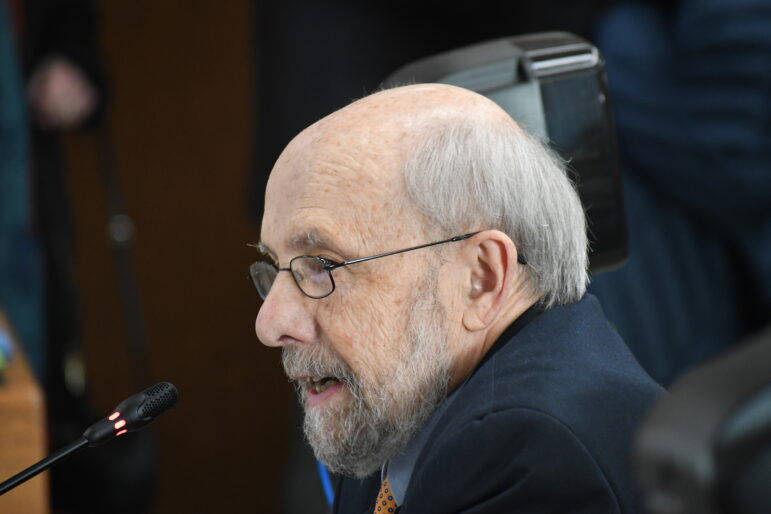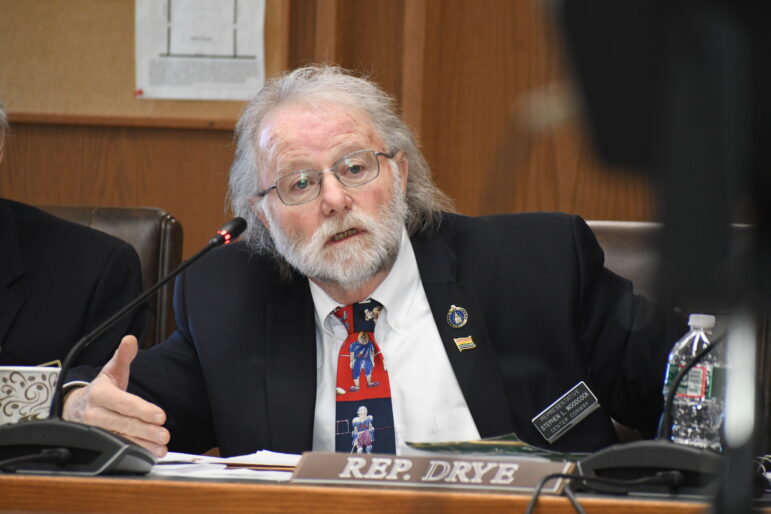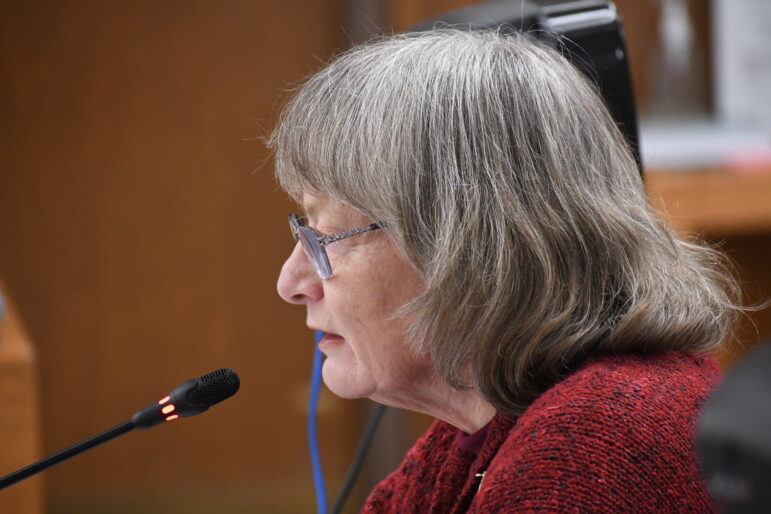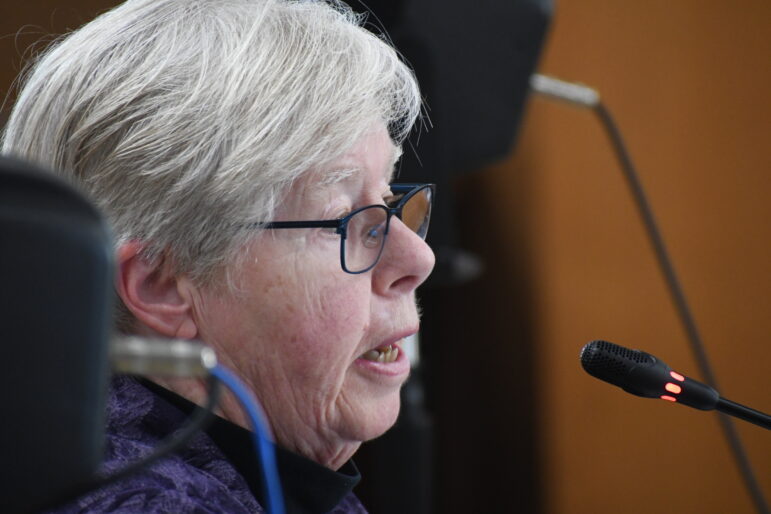The New Hampshire House of Representatives Education Committee had a full slate on Friday. Here’s what they discussed.

This bill modifies the school district liability for special education costs from 3.5 times the cost of the average expenditure per year to 1.5 times the cost.
Due to additional questions from the committee but a lack of time to find answers for them due to a packed schedule in upcoming weeks and the importance of this bill according to Mel Myler (D-Contoocook), there was a 17-0 vote to retain the bill for further study.
This bill would allow the New Hampshire Department of Education and local school districts to create contracts with transportation network companies for the sake of school transportation.
Best known through companies such as Uber or Lyft, transportation network companies, also colloquially known as “ride share companies” differ from taxi companies through the use of a digital network to connect drivers and riders for pre-arranged rides and the use of personal vehicles owned by a driver rather than owners of the network itself.
Bill sponsor Glenn Cordelli (R-Tuftonboro) said that the bill is not intended to replace the traditional “yellow school buses” but provide supplements to them in situations where school transportation has been traditionally difficult such astrade school students, special education students and McKinney-Vento students.
Cordelli specifically told Stephen Woodcock (D-Conway) that the proposal could help two elementary school students near in his area in Hart’s Location. Cordelli also said that demand for transportation network companies vary everywhere, but members of the committee did not specifically ask how the proposal would overcome the rider/driver demand problem that ride share companies frequently find in rural areas.
The bill does not specify certain Transportation Network Companies, but Cordelli says some have expressed interest in providing school transportation services.
Members of the committee seemed interested in the concept, but expressed confusion over who would pay for the service.
New Hampshire State Police Director of Pupil Transportation Gregory Hildreth said that his department is opposed to the bill as written. He noted that under current state law, school buses are owned by school districts or specific school bus companies, which would conflict with the law regarding transportation network companies.
He also said that school buses and other vehicles specifically intended to be school buses have more stringent safety standards than a normal passenger vehicle. He also added that parents can currently use transportation network company vehicles to provide rides to school for their own children independently of school bus services provided by school districts.

This bill would create a new school district contiguous with a village district in Bridgewater, Hebron and Groton.
The village district already has joint operation of a village school with the Newfound Area School District (SAU 4), but many residents in those towns feel as though their concerns are not being heard given the large area of the seven-town school district.
The village school currently has students from Grades K to 5, but supporters of the bill seek to expand the school to a K-8 school, with students then hearing to Newfound or other nearby high schools such as Plymouth.
Elected officials and residents from all three towns that would be represented in the current village district voiced support for the bill. While some supporters indicated that this could raise tax rates, the perceived improvement in educational quality would make up the difference in their opinion.
Opposition for the bill centered around budgetary unknowns that would arise for the Newfound Area School District and the lack of preparation time around the transition, which could lead confusion among school staff during the transition, with a vote on the matter locally in about a month and transition beginning in about a year.
Bill sponsor Rick Ladd (R-Haverhill) spoke on this bill, seeking consistency regarding tuition rates between parents and school districts. This bill applies to areas where parents have more than one school available for their children to choose, but tuition rate agreements for students in their specific towns between a school district and some of those high schools may vary.
Ladd said that those rates are currently opaque, creating discriminatory practices for parents in some towns versus some in others. This bill would set a single tuition rate set by a school board and allow parents to pay the difference if they seek to enroll their child in another school available to residents of their town that costs more in tuition than that single tuition rate.
There were concerns from Linda Tanner (D-Georges Mills) who feared school districts placing tuition caps using this proposed law comparable to the cost-per-student cap proposed in Croydon, resulting in significant additional unavoidable costs for parents.

This bill allows the state to recover the cost of vocational rehabilitation services from individuals who earn third-party awards or settlements obtained by clients of vocational rehabilitation services.
Representatives of the Department of Education said that this would come into play in a situation such as someone getting worker’s compensation and then the state taking some of that money to repay the money spent to help the person in that job, although they said this situation is incredibly rare.
This bill seeks to put background checks on volunteers and employees of non-public schools that receive public funds.
Tanner said that this would put non-public schools in line with public schools that require stringent background checks to ensure the safety of children and would not apply to parents home schooling their children.
However, there were concerns about parents that collaborate with each other in home schooling collaboratives as well as smaller schools and this bill creating an undue financial burden to them. There were also concerns about the bill not being needed when parents or other volunteers are supervising children solely in the presence of others who have already been background checked and that every adult in the state of New Hampshire is already a mandatory reporter of child abuse.
There were also concerns over requiring a parent to obtain a background check to supervise other children in addition to their own child in a situation outside of their home and failing that check, leading to unforeseen consequences.

Judy Aron (R-South Acworth), one of the sponsors of this bill, spoke to the committee on it. If passed, it would require school board members to answer questions posed to them by individuals in a public hearing at a meeting open to the public within five business days.
Aron said the idea for this bill arose from certain school boards across the state that were unresponsive to the concerns of constituents.
It was unclear if this would apply to items not available to the public such as confidential student or employee information, or in special meetings about a specific item if non-germane questions would be allowed.
In response to a question from Woodcock, the answer of “I don’t have an answer right now, but will find out for you” would be an allowable response under this law.
Barrett Christina of the New Hampshire School Board Association lambasted the proposal, listing off a series of arcane educational regulations as an example of what school board members would be required to know (or find out about within five days.) He also said finding out information on these and other items could be difficult since school boards are not statutorily required to have chairs, attorneys, legal procedures, orientations or various other requirements that school boards in most school districts usually have but some board in smaller districts don’t.
He also worried that this would help embolden a wave of hostility toward school boards that led people to harass school boards in areas they do not live in following the COVID-19 pandemic. That led to a new law requiring a 30-minute public hearing period that is often not needed since the flood of people speaking during public comment hearings has dried up, but school boards cannot act on other items until that 30-minute window has elapsed.
Christina also asked why this requirement only extended to school boards and not all public boards.
This bill creates a students’ bill of rights, based on elements of the New Hampshire and U.S. Constitutions.
Tanner, one of the sponsors on the bill, said it did not create new rights for students, but ensured rights they are entitled to within the constitution.
Members of the board asked why some parts of the constitutions were included and others were not, with Ladd flat out asking why it was needed.
There was criticism that this bill was created without the input of students as well as unforeseen consequences that could make it difficult for parents to instill their values on their children, such as freedom of religion for the students allow them to ignore parental orders to attend a certain church.
Former State Representative Sue Mullen (D-Bedford) said that the bill ensures the autonomy of students, specifically their right to have thoughts of their own without fear of reprisal, but not complete independence given the need for parental oversight.








